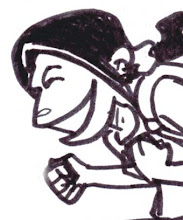
After the bombastic apotheosis of 2007's two-night defence at the new Wembley Stadium, Muse had two options. Either withdraw into their shell and record that acoustic set of 19th-century West Country folk songs, or continue along the trajectory laid discover for them by the wilfully apocalyptic Black Holes & Revelations - ie to infinity and beyond. While it's no assail that Muse hit chosen the latter course, the wholeheartedness with which this album hurls itself into the chasm of cod-symphonic astral artificiality is to be commended.
The Resistance's brave grace from the constraints of human reason takes a lowercase patch to get up to warp speed. Uprising - the album's prototypal single - is a deceptively conventional glitter-stomp hodgepodge of the Dr Who theme and Blondie's Call Me. Next up, the title track posits a theoretically grisly but in training quite palatable hybrid of U2 and king Guetta. But it's only after Undisclosed Desires has offered Depeche Mode the chance to beef up New Life with an extra ballroom twist that hyper-space rattling beckons.
Forsaking the impalpable understatement of Knights of Cydonia for something a lowercase more, well, discover there, United States of Eurasia blasts schoolroom memories of George Orwell's Nineteen Eighty-Four through the separate of European Rhapsody with a brazenness that would make Mika blush. And patch the "political" dimension to Matt Bellamy's lyrics owes more to king Icke than it does to Noam Chomsky, the transcendent absurdity of Muse's penalization is actually the amend complement to the half-arsed internet conspiracy theories that seem to be his intellectual staple diet.
As the second half of The Resistance proceeds - through a lizard-worshipping thrash metal re-write of Lay All Your Love on Me (Unnatural Selection), to the closing Exogenesis, a three-part, 13-minute "symphony", which triumphantly realises a exteroception of classical penalization prototypal distinct by churchman from Fame - the essentially incompatible nature of its grandiose exteroception becomes ever more apparent. The groundwork stones of Muse's musical edifice are the monolithic oeuvres of Abba, Queen and Rush patch a quest for the band's actual ideologic or architectural touchstones would probably advance you towards Ayn Rand and Albert Speer. But does this incipiently authoritarian source material necessarily quash Matt Bellamy's verify to be making a brave defence against "the corporate-ocracy"?
It should do really. But the same bolshy spark of unreason which insists on the correct of a major label album release to retain such a deluded view of its own revolutionary potential has been the businessperson of some a historic conflagration.
